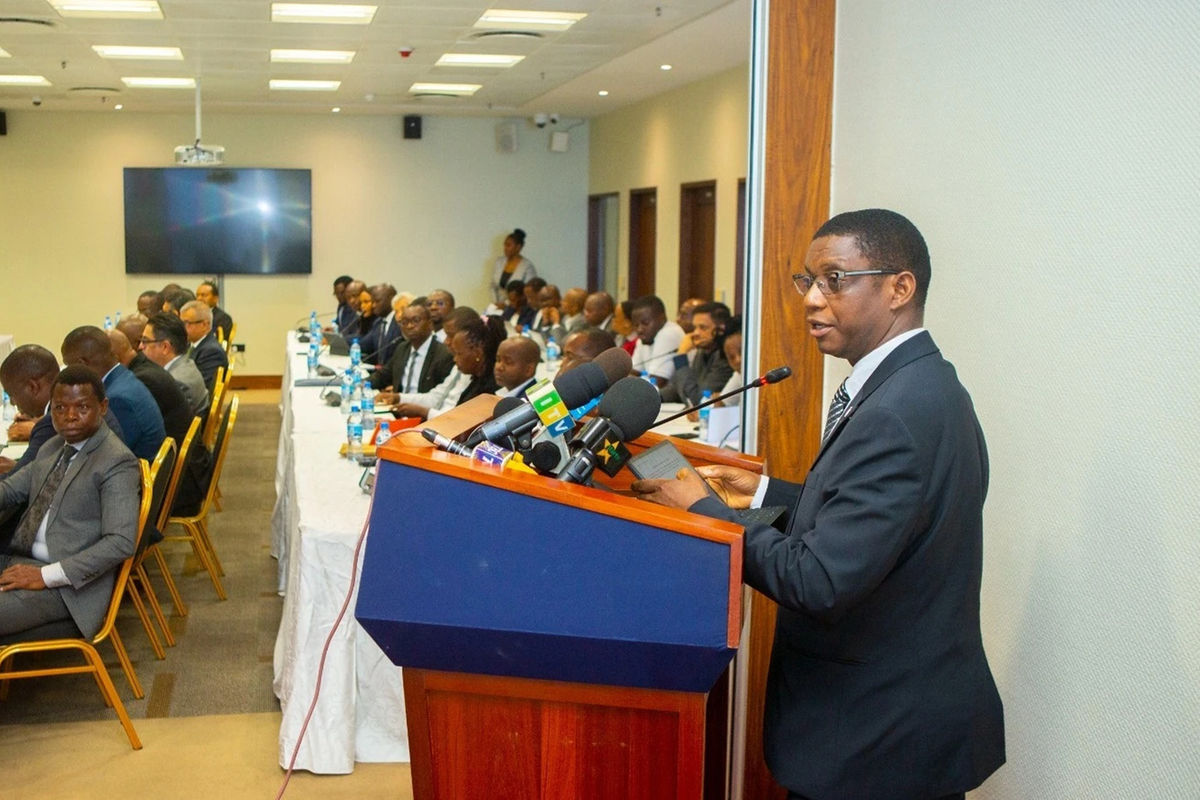
Dar es Salaam. Benki kuu ya Tanzania (BoT), imesema mwaka huu ukuaji wa uchumi Tanzania Bara unatarajiwa kuwa asilimia sita huku ule wa Zanzibar ukikua kwa asilimia 6.8 mwaka huu .
Ukuaji huu unatajwa kuwa utachochewa na ongezeko la uzalishaji katika shughuli za kilimo, miradi ya ujenzi, maboresho katika usafirishaji na ugavi, nishati ya uhakika, pamoja na utekelezaji wa sera za fedha na kibajeti.
Hayo yameelezwa leo na Gavana wa BoT, Emmanuel Tutuba alipokuwa akizungumza na waandishi wa habari kutoa mrejesho wa kikao cha Kamati ya Sera ya Fedha (MPC) cha kila robo mwaka kilichofanyika Januari 7, 2025. Ambacho pia kilifanya tathmini ya mwenendo wa hali ya uchumi wa dunia na Tanzania ikiwamo.
Akizungumza Tutuba amesema uchumi wa Tanzania Bara ulikua kwa asilimia 5.4 katika nusu ya kwanza ya mwaka 2024 unatarajiwa kukua kwa asilimia 5.6 katika robo ya tatu na asilimia 5.7 katika robo ya nne ya mwaka 2024.
Amesema kwa kuzingatia mwenendo huo, ukuaji wa uchumi unatarajiwa kuwa sawia na maoteo ya ukuaji wa asilimia 5.4 kwa mwaka 2024. Ukuaji huu umechangiwa zaidi na ongezeko la shughuli za kilimo, usafirishaji, ujenzi na biashara.
Amesema kwa upande wa Zanzibar, uchumi ulikua kwa asilimia 6.8 katika robo ya kwanza na asilimia 7.2 katika robo ya pili ya mwaka 2024 na unakadiriwa kukua kwa viwango hivyo kwa robo mbili zinazofuata, hivyo kufikia maoteo ya ukuaji wa asilimia 7.2 kwa mwaka wa fedha wa 2024/25.
“Katika mwaka 2025, ukuaji wa uchumi kwa Tanzania Bara na Zanzibar unatarajiwa kuendelea kuwa wa kasi ya kuridhisha, kwa takriban asilimia 6 na asilimia 6.8 mtawalia,” amesema Tutuba.
Amesema ukuaji huu unatarajiwa kuchangiwa na ongezeko la uzalishaji katika shughuli za kilimo, utekelezaji wa miradi ya ujenzi, maboresho katika usafirishaji na ugavi, nishati ya uhakika, pamoja na utekelezaji wa sera za fedha na kibajeti.
Katika hatua nyingine Tutuba amesema thamani ya shilingi ya Tanzania inatarajiwa kuwa imara katika robo ya kwanza ya mwaka 2025 kutokana na kuwepo kwa ukwasi wa kutosha wa fedha za kigeni uliopatikana katika robo ya nne ya mwaka 2024, utekelezaji wa sera ya fedha kutokana na uamuzi wa kubakiza Riba ya Benki Kuu kuwa asilimia 6.
Sababu nyingine ya kuimarika kwa thamani ya shilingi ya Tanzania ni bei za bidhaa katika soko la dunia kuwa nafuu, huku BoT ikichangia kuendelea kusimamia utekelezaji wa Kifungu cha 26 cha Sheria ya Benki Kuu kinachohimiza matumizi ya shilingi katika kufanya miamala hapa nchini ili kupunguza mahitaji ya fedha za kigeni yasiyokuwa ya lazima.
“Pia Benki Kuu inatarajia kuendelea kuwa na akiba ya kutosha ya fedha za kigeni na kuziongeza pale itakapohitajika. Akiba iliyopo sasa Dola za Marekani 5.5 bilioni (Sh13.667 trilioni) kiwango ambacho kinatosheleza uagizaji wa bidhaa na huduma kutoka nje kwa zaidi ya miezi 4.7,” amesema Tutuba.
Akiba hiyo inatarajiwa kubaki katika kiwango hicho katika robo ya kwanza ya mwaka 2025 kutokana na juhudi zinazofanywa na Benki Kuu katika kuongeza akiba ya fedha za kigeni, ikiwemo kununua dhahabu hapa nchini.
Akizungumzia maamuzi yaliyofanyika katika kikao cha Januari 7, Tutuba amesema Kamati ya Sera ya Fedha iliamua kuendelea na kiwango cha Riba ya Benki Kuu (CBR) cha asilimia 6 katika robo ya kwanza ya mwaka 2025.
Uamuzi huo wa Kamati wa kutobadili Riba ya Benki Kuu unalenga kuhakikisha kiwango cha ukwasi kinaendelea kuwa cha kutosha katika uchumi, kudhibiti mfumuko wa bei kubaki chini ya lengo la asilimia 5, na kuwezesha kuongezeka kwa kasi ya ukuaji wa uchumi kufikia takriban asilimia 5.7 katika robo ya kwanza ya mwaka 2025.
“Pia uamuzi huo unalenga kuwa na utulivu wa thamani ya shilingi dhidi ya fedha za kigeni ili kuendelea kuwa na mfumuko wa bei mdogo. Utulivu wa thamani ya shilingi dhidi ya fedha za kigeni utachangia jitihada za kuwafanya wananchi kutofanya miamala yao kwa kutumia fedha za kigeni nchini.
Source: mwananchi.co.tz













